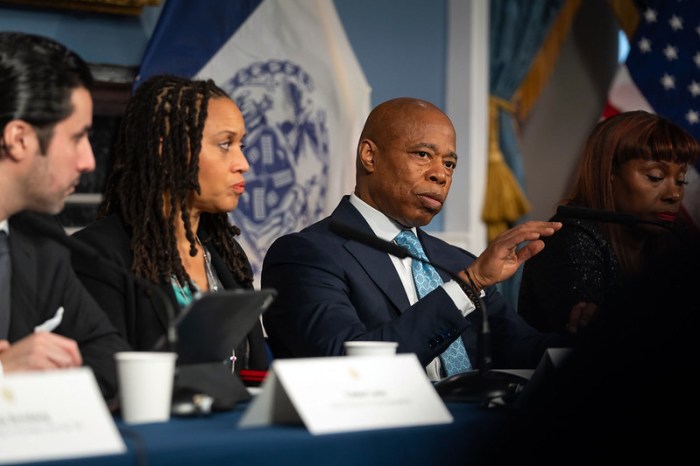WASHINGTON – Americans have an uncomfortable relationship with smart. They are perfectly happy to celebrate genius, provided it doesn’t make them uncomfortable or require too much of them.
They are more concerned that their children get into college than they are that those kids are graded against the kind of tough standards that might ensure understanding of important concepts. Once in college, students often really have to screw up to get a D or an F. I taught graduate school for a number of years, and I practically had to alert psychological counselors if I gave anyone anything below a B.
This phenomenon was once described as “the dumbing down of America.” And in recent years, the trend has accelerated.
One particularly odious element of it is what might be called pop intellectualism. Big, buzzy ideas are boiled down into short books that provide more cocktail-party conversation than significant concepts that require a little work to grasp. Think “The Tipping Point” and “The Black Swan.” (For real heavyweights, there’s always the biography of Steve Jobs or recent, popular volumes by Thomas Piketty and Henry Kissinger to leave on the coffee table and make an impression.)
Worse still is the whole TED talks phenomenon, which offers the intellectual equivalent of diets in which someone can lose 10 pounds in two weeks without giving up ice cream sundaes or pizza. In just 18 minutes, a person can be exposed to breathlessly earnest genius — a slickly marketed brand of chicken nuggets for the brain. The talks enable non-scientists and non-technologists to feel smart, but that is not the same as actually being smart or, alternatively, feeling dumb in the way that hard ideas sometimes make you feel — and should — when you first encounter them.
Perhaps worst among the consequences of the dumbing down of America is the hyper-politicization of discourse.
This has led to the rise of media outlets and debates that are tailored to specific audiences who seek out viewpoints that support already-held beliefs. (The notion that beliefs are more important than actual knowledge is a byproduct or perhaps a driver of all this.) So people watching or reading the news tend not to see both sides of any issue — much less issues that have more than two sides. Litmus tests and the ability to articulate already-popular views are valued more than what is really new or challenging.
Unsurprisingly, this trend’s impact on creativity and imagination in Washington — the epicenter of political polarization and the wellspring from which all litmus tests flow — has been particularly egregious.
In the policy community, people who may wish to do more than tailor ideas to pre-existing, polled audiences have discovered that in doing so they run the risk of offending someone on Capitol Hill who might not vote to confirm them in top jobs were they ever to want them; that is to say, originality is not only frowned upon, but it is actually institutionally quashed. Thus, far too little bold thinking goes on in the country’s think tanks.
It is safer to write an article that doesn’t offend than it is to write one that actually breaks new ground. The result? Journals that are exercises in reputation management. The bland leading the bland.
In researching my book “National Insecurity,” I looked at 10 of the most prominent think tanks in Washington over a period of a decade. These organizations produced almost 12,000 events, papers, and research reports over that time. Of these, the vast majority concentrated on just a few topics — such as the Middle East, the war on terror, and China — linked closely to whatever was in the headlines at the time. Other areas, deserving of focus but outside the “buzz zone,” got much less attention. The areas that got by far the least coverage? Science and technology — never mind that they are responsible for most of the changes redefining life on the planet and many of the emerging threats with which humanity is grappling.
In short, the city most in need of big, new ideas may be home to the most dumbed-down smart people of all. Combine a lack of creative thinking, organized stupidity like the war on science, and political paralysis, and you get today’s Washington, sleepwalking into America’s future. A symptom of this problem is seen in Foreign Policy’s list of the Leading Global Thinkers of 2014. Of the people we selected — each of whom had to meet our criteria of generating an idea or series of ideas that actually resulted in actions influencing people’s lives, whether positively or negatively — precisely two work in Washington, D.C., and neither of them works in the U.S. government.
Now, I’ll admit this is a subjective list. We pick who is on it, and hard choices are involved when looking at well more than 100 possible candidates. But candidly, this year, when it came to Washington, there just weren’t that many choices. At the moment, the Beltway is pretty close to brain-dead, especially according to our criteria. That’s not to say people in D.C. did not take actions that affected many people; but when they did, those actions did not flow from new thinking or anything remotely like a big idea.
Before the anti-government types start saying it was ever thus, let’s not dismiss the impact of the birth and growth of American democracy; the push westward fostered by federally sponsored expeditions, such as that of Lewis and Clark; the abolition of slavery; the cultivation of national infrastructure; the space program; the Internet; and a host of other things that, if not exclusively born of Washington, were at least nurtured there. When Washington has been a source of creativity, America and the world have benefited greatly.
The absence of Washingtonians on our Global Thinkers list isn’t just a reflection of the fact that we think America’s capital has hit a new low or that we worry about how that low is linked to the broader dumbing-down trend limiting America. Rather, we are also casting light on the situation in the hope that it triggers a discussion about how Washington must change. It is high time for America to identify and work to reverse the developments that have led to the quashing of imagination in Washington. This work includes bringing new perspectives to a city that has far too many lawyers and lobbyists and not enough scientists, technologists, entrepreneurs, and other creative thinkers.
The world certainly does not always need Washington to function, even thrive — the past few years have proved that. But it is clearly better off when the business of Washington is driven by new ideas rather than when, as seems to be the case today, it is stunted by fear of them.
Rothkopf is CEO and editor of the FP Group.

















